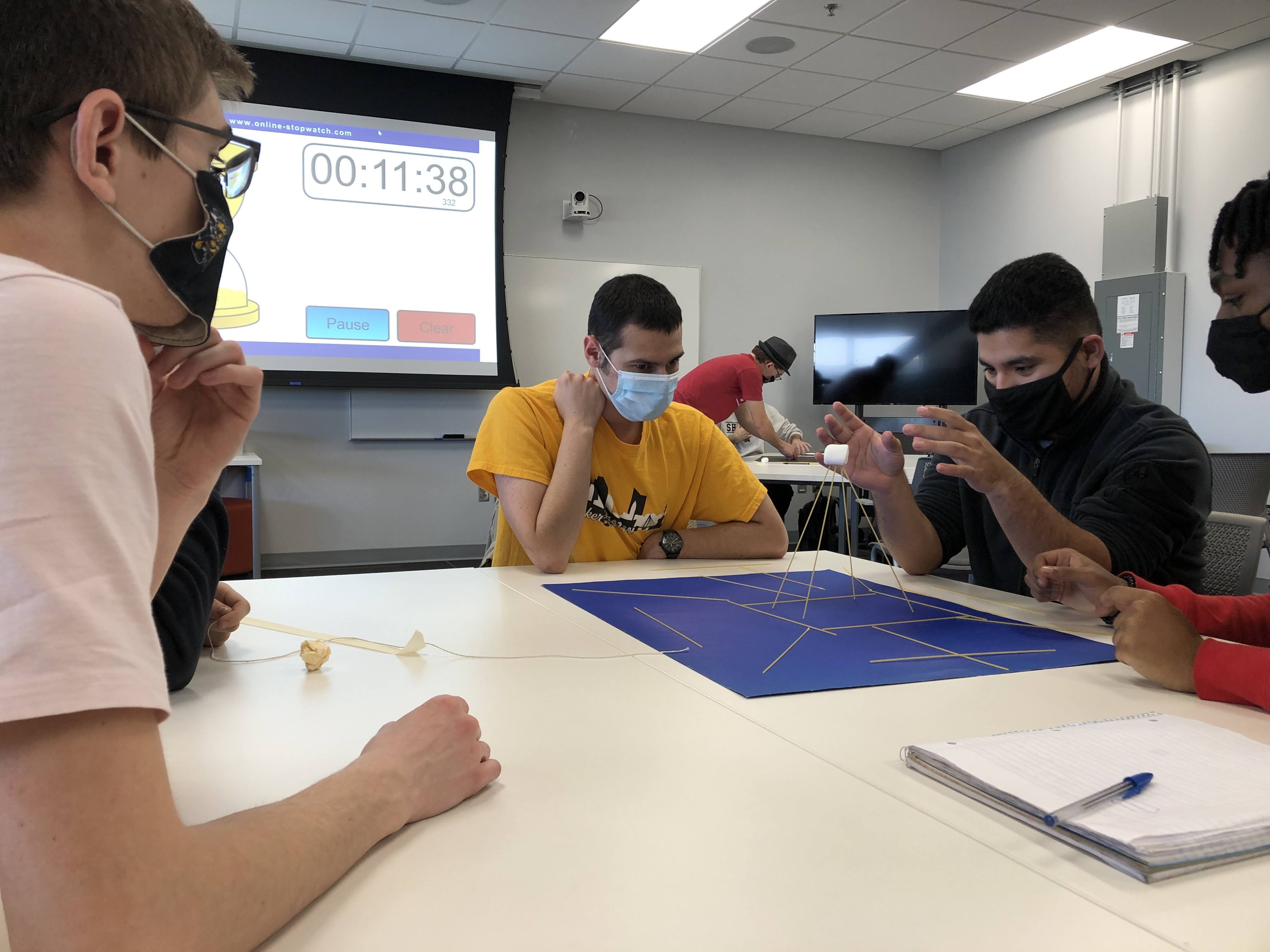Mini Design Challenges
How would you approach solving the following challenges:
- "I need a way to drink water on the go."
- "I need to create a safe way to cook in a home with no electricity."
- "I need a way to carry groceries up several flights of stairs."
These are just a few of the challenges presented to students during the course. These Mini Design Challenges are a key component of the course and are used in place of a traditional class lecture to actively teach critical thinking and problem solving skills, teamwork skills, communication skills, systems thinking, dealing with ambiguity, customer awareness, and more.
House of Cards
How do you build something for a client when they have vague ideas of what they want or keep changing their mind? This open-ended design challenge is adapted from Donald Carpenter at Lawrench Tech and introduces key design concepts associated with entrepreneurially minded learning (EML), including customer awareness, teamwork, and learning from failure.
Draw Toast
In just 3 minutes, each person sketches a diagram of how to make toast. When comparing diagrams, people are shocked at how diverse the diagrams are, revealing a wide range of models of what's important in making toast. The process teaches systems thinking and reveals unexpected truths about how we can solve our biggest, most complicated problems. This challenge is adapted from Tom Wujec and is a great way to get groups to think freshly about mental models.
Gift Giving Challenge
In 45 minutes, each person will redesign the gift-giving experience for your partner that is meaningful and useful to them. This design challenge is adapted from the Standford d.school Gift-Giving Project and allows you to experience a full Design Thinking design cycle.
Build a Duck
In 2 minutes, each person takes an identical bag of LEGO bricks and builds a duck with no instructions. No two ducks are the same! But which one did the customer want? This design challenge is adapted from Donald Carpenter at Lawrench Tech and introduces key design concepts associated with entrepreneurially minded learning (EML), including customer awareness, critical thinking, and dealing with ambiguity. This activity will prepare you to conduct better customer interviews.
Invent a Snack
You work for the company on one randomly-selected card, and they now require you to develop a product for them that is on the other randomly-selected card. For example, you may work for Nabisco and your customer is an art student who lives on campus. Your team will have 7-minutes to develop the product’s features, benefits, target audience, and perhaps promotional ideas. One spokesperson from each team will pitch the product to the class, Shark Tank-style. This activity uses forced association (combining disparate ideas) and is a helpful and practical way to get ideas for potential innovation, and is a skill that can be developed with practice.
Team Tangrams
You'll have 45 minutes to collaboratively solve one simple Tangram puzzle, such as
a tree, a cat, or a horse, with a partner. While the puzzle itself may be simple the
team communication needed to solve it may not be! What if only one partner can speak?
What if only one partner can see the design? This design exercise teaches teams to
work through dilemmas, miscommunications, and different perspectives to improve problem
solving and communication skills.
Marshmallow Challenge
In 18 minutes, teams build a structure out of dry spaghetti, one yard of tape and a marshmallow. Who can build the tallest tower with these ingredients? And why does a surprising group always beat the average? This design exercise from Tom Wujec encourages teams to experience simple but profound lessons in collaboration, innovation and creativity.


